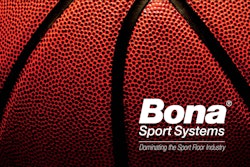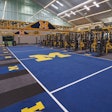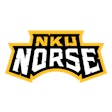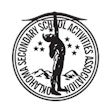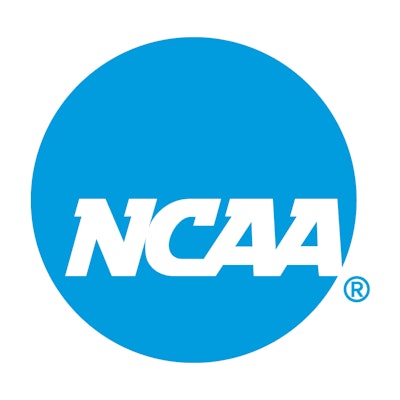
College sports leaders are in "deep discussions" to reach a legal settlement that would likely lay out the framework for sharing revenue with athletes in a future NCAA business model, sources told ESPN.
As reported by ESPN's Pete Thamel and Dan Murphy, the NCAA and its power conferences are defendants in an antitrust class action lawsuit, House v. NCAA, which argues that the association is breaking federal law by placing any restrictions on how athletes make money from selling the rights to their name, image or likeness. The case is scheduled to go to court in January. If the plaintiffs win at trial, the NCAA and its schools could be liable to pay more than $4 billion in damages, which has motivated many leaders across the industry to seek a settlement.
Sources indicated that a turning point came last week when power conference commissioners, their general counsels, NCAA president Charlie Baker, NCAA lawyers and the plaintiffs' attorneys met in the Dallas area, where they had assembled for the College Football Playoff meetings.
No deal is imminent, according to ESPN's sources, but details about what a multibillion-dollar settlement could look like are expected to be shared with campuses in the near future. "There are myriad variables to get to the finish line and still some obstacles and objections at the campus level, but sources indicate that progress has ramped up in recent weeks," Thamel and Murphy wrote.
Per their report:
A settlement would provide some legal relief for a college sports industry that's been peppered by lawsuits. It could also serve as a keystone piece to formulating a more stable future. With the settlement expected to cost billions in back pay for former athletes, it would likely also require the NCAA and conferences to agree to a system for sharing more revenue with some of the players moving forward.
The House case is one of four active antitrust lawsuits, all of which serve as a threat to some part of the NCAA's remaining caps on how athletes are paid. In three of those cases, including the House case, athletes are represented by veteran sports labor attorney Jeffrey Kessler.
Sources indicated the top-end revenue share number per school — once it's determined — would be in the neighborhood of $20 million annually, although that's yet to be settled. Whatever number is set by the settlement, individual schools will be able to opt in to share revenue up to that number with their student athletes at their discretion. (They could choose to share less, but not more.)
What's uncertain, for now, are the mechanics of how this could work. Do the schools buy the NIL of their athletes? How would Title IX be impacted?
Steve Berman, Kessler's co-council, told ESPN on Monday: "Judge Wilken has told us that she expected us to be discussing settlement given the lengthy litigation over the issues and the parties' familiarities with the strengths and weaknesses on each side. We are simply following the judge's instructions and have nothing to report other than that."
Thamel and Murphy continued:
The House case includes two separate classes of plaintiffs. The damages class is composed of former college athletes from the past several years who argue the NCAA owes them back pay for the money they could have earned if they had been allowed to sign NIL deals prior to 2021. The injunctive class includes current college athletes, who argue that any of the existing restrictions on what types of NIL deals athletes can sign are also illegal.
In court testimony, economic experts hired by the plaintiffs argued that the damages class missed out on more than $1 billion in NIL opportunities in the years leading up to 2021. In antitrust cases, the court makes the defendant pay triple the amount of actual damages as punishment if it has violated the law -- hence the estimated $4 billion price tag of a legal loss.
"If we settle for the injunction class, it will involve an agreement of what the future will look like," Kessler said. "If we settle for the damages class, that's basically money for the past."
Another pending antitrust lawsuit, Carter v. NCAA, which was also filed by Kessler, argues that the NCAA should not be able to keep schools from paying players directly for their performance. While the cases do not need to be settled together, it's likely that both sides would want to reach an agreement that is substantial enough to keep them from ending up back in court for the Carter case in the near future. Sources indicated to ESPN that schools would likely want protection from future litigation as part of a settlement in the House case.


















